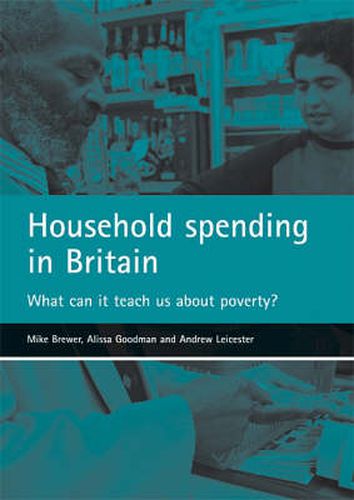Readings Newsletter
Become a Readings Member to make your shopping experience even easier.
Sign in or sign up for free!
You’re not far away from qualifying for FREE standard shipping within Australia
You’ve qualified for FREE standard shipping within Australia
The cart is loading…






Much of the recent policy debate surrounding poverty in Britain focuses on income as a measure of living standards. In this report we consider one alternative to income for measuring poverty that has been largely overlooked in the mainstream poverty debate in the UK: namely household expenditure.
Economic theory suggests that household expenditure is an important measure of financial well-being. Using 30 years of data from household surveys, this report shows the trends in poverty in Britain since the 1970s when household expenditure is used as a measure of financial well-being, rather than household income and investigates how using spending, rather than income, as a measure of well-being alters our view of who is poor. It examines the spending levels of the lowest-income households and analyses whether low-income pensioners’ spending on basic and non-basic items increased as a result of the large increases in entitlements to means-tested benefits since 1999.
The research will be of interest to civil servant policy-makers, academics and researchers working on poverty issues, and other groups with an interest in anti-poverty policies.
$9.00 standard shipping within Australia
FREE standard shipping within Australia for orders over $100.00
Express & International shipping calculated at checkout
Much of the recent policy debate surrounding poverty in Britain focuses on income as a measure of living standards. In this report we consider one alternative to income for measuring poverty that has been largely overlooked in the mainstream poverty debate in the UK: namely household expenditure.
Economic theory suggests that household expenditure is an important measure of financial well-being. Using 30 years of data from household surveys, this report shows the trends in poverty in Britain since the 1970s when household expenditure is used as a measure of financial well-being, rather than household income and investigates how using spending, rather than income, as a measure of well-being alters our view of who is poor. It examines the spending levels of the lowest-income households and analyses whether low-income pensioners’ spending on basic and non-basic items increased as a result of the large increases in entitlements to means-tested benefits since 1999.
The research will be of interest to civil servant policy-makers, academics and researchers working on poverty issues, and other groups with an interest in anti-poverty policies.